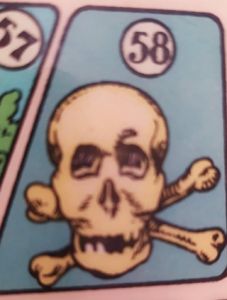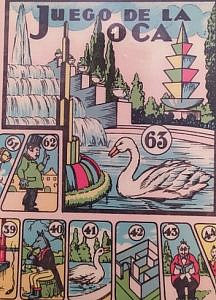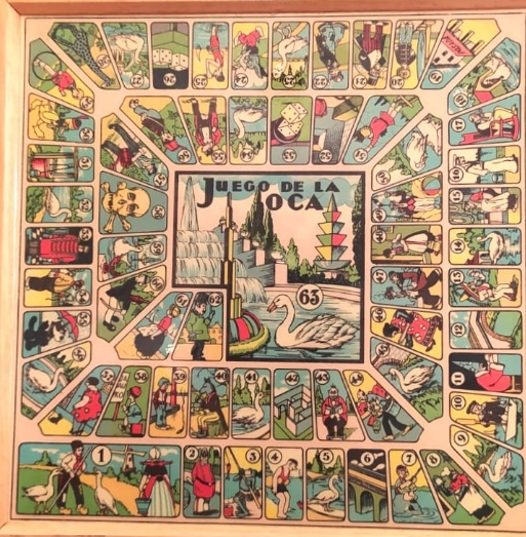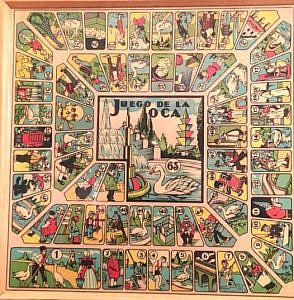Analog game
“La Oca”, which in English means “Goose”, it’s a board game which consists of a board of 63 boxes with different pictures. To win, you have to arrive the first one in the central box, which it’s not that easy as it seems, because there are some boxes where you can find punishments, but in other ones there are prizes, where you can be able to move along it easiest, as the one that has a goose paint, on which you have to say “de oca a oca y tiro porque me toca” which is a popular rhyme in Spain. This phrase literally means “from goose to goose, I throw because it’s my turn”, it’s kinda weird…
Furthermore, this board game is so popular in my home country, also with Parchis game. Actually, there are tables that have both games in one and as a player, you start playing one after the other.
I played since I was a child with my family and friends, especially with my grandfathers. What I like most about “La Oca” is the rivalry that is forming, although always from the respect to be able to have fun. I love how all the boxes have a different picture, on where each one can have a different significance than the other; the worst one is the one that has a skull paint ₁, because you have to restart the game. Of course, it’s a totally random game, where you cannot make any decisions, that is why is so interesting.

There’s nothing that I don’t like, because it’s a popular game, which helped me to learn how to count when I was a child. It’s dynamic and entertaining, on which you will not grow weary playing over and over again, and, for sure, it is also good for the integral development of a child.
The rules are so easy, you only have to throw one or two dice (depending on the version which you are playing) and try to move along, if you fell in a punishment box, you must carry out it (for example, being 2 or 3 turns unable to throw). When you reach the final box, called “El Jardín de la Oca” ₂ you will have won. There are different special boxes, among them, “La Oca” (the goose), “Los puentes” (the bridges), “La posada” (the hostel), “El pozo” (the pit), “Los dados” (the dice), “El laberinto” (the labyrinth), “La cárcel” (the jail) and “La calavera” (the skull), each one with its punishment or reward, and in some you will have to say a rhyme in order to continue, like the one that I said before “de oca a oca y tiro porque me toca” and “de puente a puente y me lleva la corriente”, which means “from bridge to bridge, the stream of water takes me”.

For me, it’s not the best board game in the world, but it has helped me several times and it gave me great moments with my family and friends. I invite everyone to play it, although it may seem like a child’s game, it is funny to play.
- Designers: the first version was between 1574 and 1587
- Publisher: –
- Release date: –
- Number of players: +2
- Playing time: 30-40 min
- Ages: +4
______________________________________________
All pictures are taken by me

